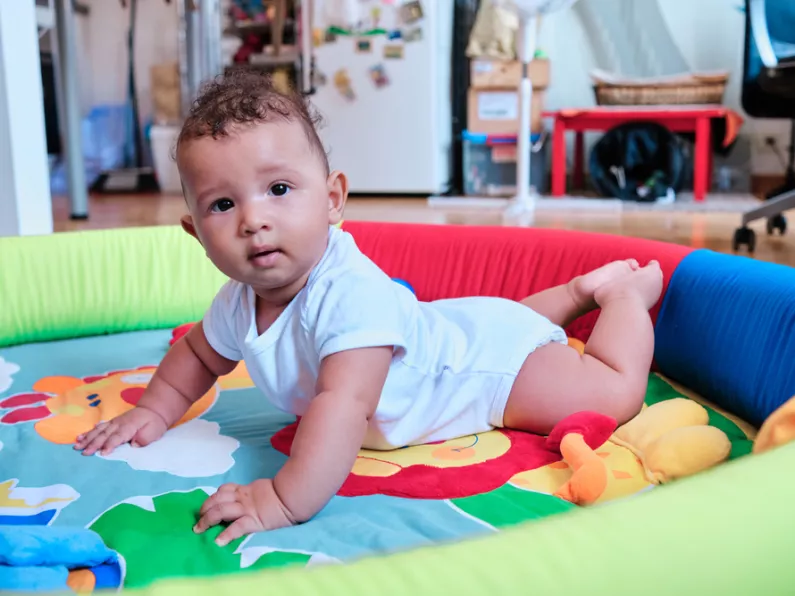The exact causes of colic are unknown, but it’s thought that it can be caused by a milk sensitivity, called temporary lactose intolerance.
This is because in the first months of life, some babies are unable to break down lactose, a complex sugar in breast and formula milk.
It can cause wind, bloating and discomfort, and one of the main symptoms is inconsolable crying.
The condition affects up to one in five babies.
Here are 7 things to try if your baby has colic.
7 things to try if your baby has colic
- Keep track of time: Introduce a soothing routine around the time of the day when your baby’s colic is usually at its worst, which is typically in the evenings. If you can find a pattern, you may be able to work out any triggers.
- Hold the baby during crying episodes: This comfort can help settle your distressed baby.
- A warm bath: Giving your baby a warm bath can help them to relax and reduce stress, which can ease any symptoms of colic. The warm water can also help to soothe their tummy and alleviate gas and bloating.
- Baby massage: Gently massaging your baby's tummy may help to soothe colic symptoms.
- Bicycle baby's legs: Bicycling your baby's legs in a circular motion can help to release gas trapped lower in their abdomen.
- Cradling your baby face down on the forearm: Holding them face down with your hand under their belly and their head on your forearm can help because the pressure on their tummy might relieve uncomfortable gas.
- Carrying your baby in a papoose or sling: Babywearing is a support that can relieve colic.
Medication
You can speak to your doctor about infant drops or perhaps a suitable probiotic, which may help ease the symptoms.
But if you’re worried that your baby is more seriously ill, or has other symptoms such as blood in the stools and vomiting, seek medical advice as soon as possible.







